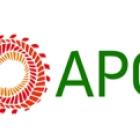Feminist talk
This article examines the role of multistakeholderism in countering gendered disinformation across Africa, highlighting experiences from Uganda and regional dialogues. Drawing on panel discussions at FIFAfrica 2024, it asks for effective responses required for collaboration between governments, civil society, academia, and tech companies, given the complexity of disinformation rooted in patriarchy, politics, and cultural narratives. Inclusive, context-driven approaches that move beyond dialogue toward collective, coordinated action are needed.
In depth
As Beijing+30, WSIS+20, and the Pact for the Future converge, this article reflects on three decades of feminist engagement at the intersection of gender and digital rights. While recognition of issues like technology-facilitated gender-based violence and AI harms marks progress, multilateral processes remain fragmented, Western-centric, and weak on accountability. This article argues for integrated frameworks that centre human rights, intersectionality, and Global South participation, urging active implementation over commitments to advance gender and digital justice together.
Feminist talk
This article reflects on how technological change has reshaped the landscape of gender equality. By referencing Hija Kamran's expert paper, it situates APC’s contributions, noting both the progress made and persistent gaps. The article outlines how issues such as digital gender divides, technology-facilitated violence, AI misuse, and surveillance now demand urgent attention. It stresses the need for feminist approaches, accountability, and inclusive digital policies to ensure gender justice in today’s interconnected online and offline worlds.
Feminist talk
We are pleased to present our timeline, APC since Beijing 1995: Shaping a feminist internet, showcasing the APC community’s pioneering journey at the intersection of gender rights and digital rights. This timeline honours our shared legacy built by many hands to create resources, build capacity and share voices across the global South.
Feminist talk
As Beijing+30 prompts reflection on progress toward gender equality, APC marks 30 years of shaping a feminist internet. Since its founding in 1990 and pivotal role in drafting Section J of the Beijing Platform for Action, APC has worked to ensure women and gender-diverse people can co-create digital technologies that reflect their realities. Through advocacy, movement building, and inclusion of marginalised voices, APC highlights the role of sustained feminist engagement in digital policy as vital to advancing rights and dismantling patriarchy.











